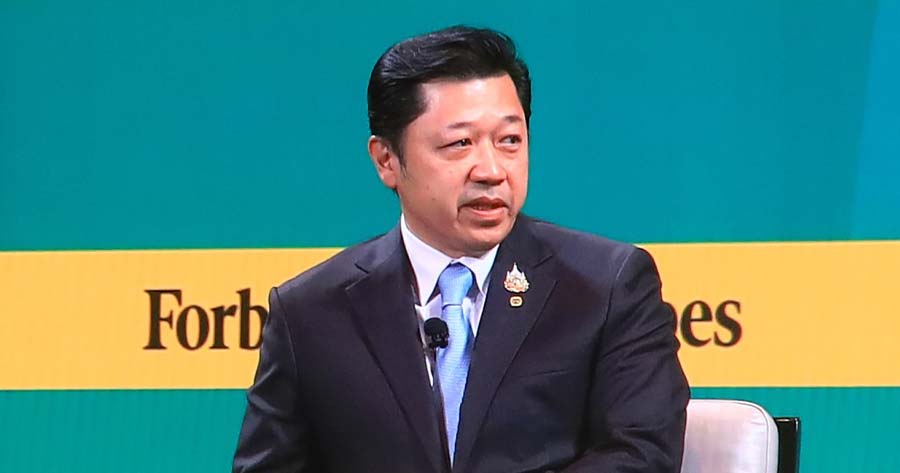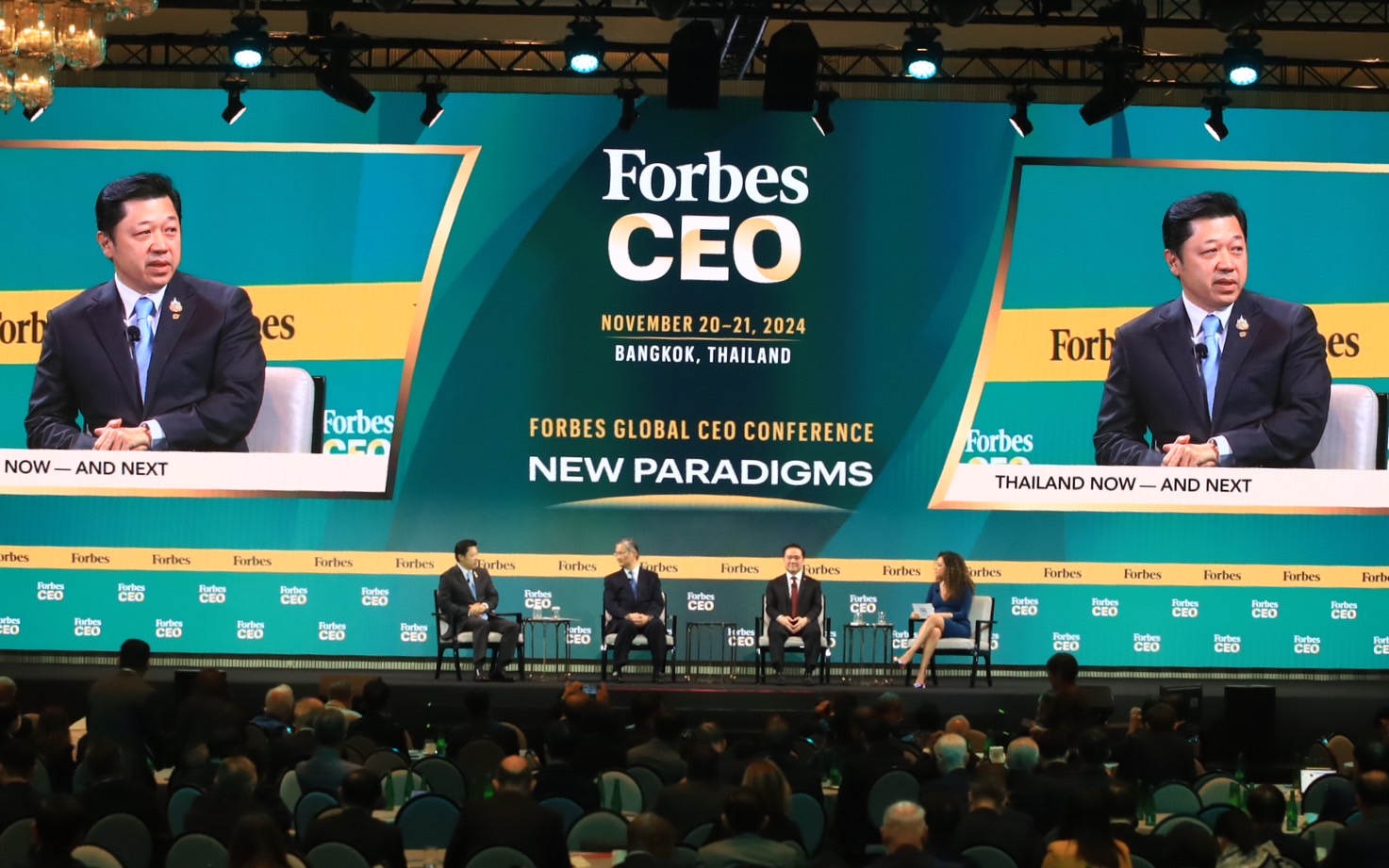Mr. Suphachai Chearavanont, Senior Vice Chairman and CEO, Charoen Pokphand Group, addressed the panel at 22nd Forbes Global CEO Conference in Bangkok that there is a positive sign for Thailand moving forward, especially with the recovering tourism and the entertainment complex as a major catalyst to fuel the country’s growth over the upcoming four to five years.
Thailand is seeing a continuous recovery with tourist arrival expected to reach million in 2025. With the boost of Thai tourism the retail business and hypermarket are also expected to grow as well. He estimates that the retail business should grow around 10% this year and the hypermarket and cash carry is expected to grow 7%.
The casino alone is expecting to generate nine billion dollars for Thailand and is expecting to be the second largest behind Last Vegas’. However, there needs further assessment from the Thai government administration. With good guidance, it will put Thailand as one of the global financial hubs.
Mr. Suphachai said that Thailand is very active despite being very competitive in the global market. There is a positive direction with a push from the government sector with incentive to boost investment in the country. He applauds the Thai government for their visionary planning and supportive policies to boost investment, encouraging the country’s path regardless of the highly competitive global market. The CEO envisions an economic rebound likely exceeding an expansion rate of 2.8%.
The CEO also addressed the potential implications of President-elect Donald Trump’s trade tariffs. Mr. Suphachai expressed that Thailand has successfully positioned itself strategically between the U.S and China, amid trade tensions that have persisted through the last regime. He analogized China as Thailand’s protective “big brother” and the U.S. as the “boss”. This role allows Thailand to act as a crucial link to connect the world’s leading economies.
In terms of investment prospects, Mr. Suphachai retains his keen interest in Asia, attributing it to the regions’ dynamic growth. He also showed optimism towards the potential economic upliftment in Myanmar, provided conflicts are peacefully resolved. The world’s second-largest economy, China, also remained on Mr. Suphachai’s watchlist for potential investments as he believes that China can overcome the property slump.
Moving westward, he identified Europe as a potential investment destination, but acknowledged the need to examine the U.S. tariff policy’s impacts. Although CPF, an agricultural enterprise focusing on Thailand, may face lower trade-tension impacts, Mr. Suphachai nonetheless maintains vigilance.
Discussing future prospects, Chearavanont emphasized digital transformation and artificial intelligence’s (AI) potential role in information management, starting from executive decisions down to operational levels. Effective AI applications could prompt growth, curtail costs, and enhance customer understanding.
Mr. Suphachai believes that sustainability goals start with executives who need to understand and implement waste-to-product transformations. Despite mentioning the challenges in achieving net-zero emissions by 2050, Mr. Suphachai appreciated the government’s push for nuclear energy as a pivotal move towards sustainability.





